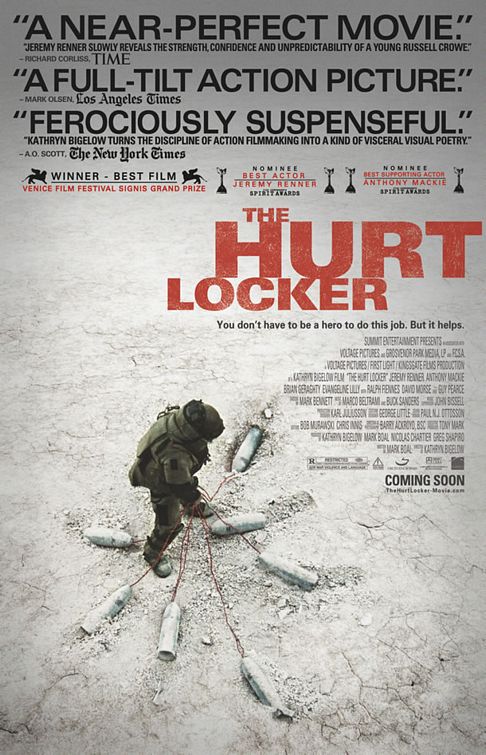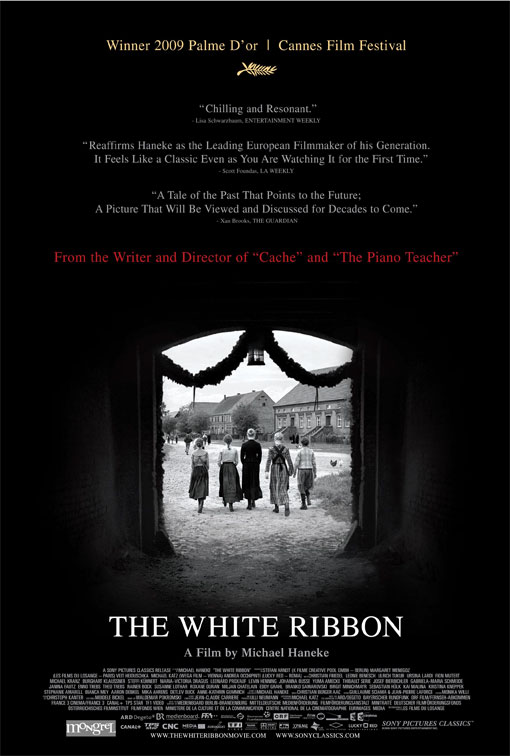 Here's a film I've been meaning to see since about November that I just today finally got around to seeing. Unfortunately, the quality of the film did not correspond too well with my desire to see it. Hurt Locker is far from a bad movie, but it's also not at risk of being a masterpiece.
Here's a film I've been meaning to see since about November that I just today finally got around to seeing. Unfortunately, the quality of the film did not correspond too well with my desire to see it. Hurt Locker is far from a bad movie, but it's also not at risk of being a masterpiece.If I could describe Hurt Locker in as few words as possible, I would just call it a fantastic war movie. However, that's much different than calling it a fantastic movie. Apocalypse Now! is a movie set during a war, but I would never think of it as a war movie, because the inner struggles of the lead characters are so much more important than the actual war story. Same goes for a movie like The Thin Red Line or Rescue Dawn.
That isn't the case with Hurt Locker. The characters are all pretty well rounded, but almost all of the character development is saved until about the last half hour when all the characters have to suddenly come to terms with various issues. When resolution for the lead character finally comes, it's delivered in an unfortunately heavy handed speech to an infant while holding a jack-in-the-box. Best Picture material, naturally.
So, war movie. Under this criterion, the film shines gloriously. The audience never has to deal with dull generals, no scenes depict officials trying to create the perfect plan to defeat the enemy, nothing of that sort occurs. Instead, there is the simple concept that everyday brings new challenges, and in war, this means life or death. That makes the movie tense, as it often is. The movie follows a unit that neutralizes bombs (which the opposing forces seem all too willing to take their time in detonating).
I don't really know much about Kathryn Bigelow, but her direction here is pretty top notch (a quick glance at Wikipedia informs me that 1) she directed that surfer movie with Keanue Reaves, and 2) she was married to James Cameron, no doubt 2 mistakes). The cinematography is really quite excellent, and even the firefight scenes aren't especially dull thanks to the camera work.
As a film, I have no real complaints about The Hurt Locker. It's not a bad movie. I would even call it a good movie, but nothing more. It's not incredibly unique in its approach, but at least it isn't entirely riddled with cliche. Also, any movie that takes awards away from Avatar is fine by me. I think it fails in its lofty attempts to be a brainy war flick, but succeeds in separating itself from the glut of action heavy war movies. I would put it on par with a movie like Jarhead, which I actually thought was surprisingly good.

